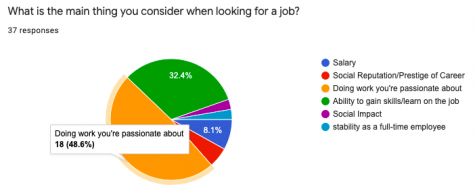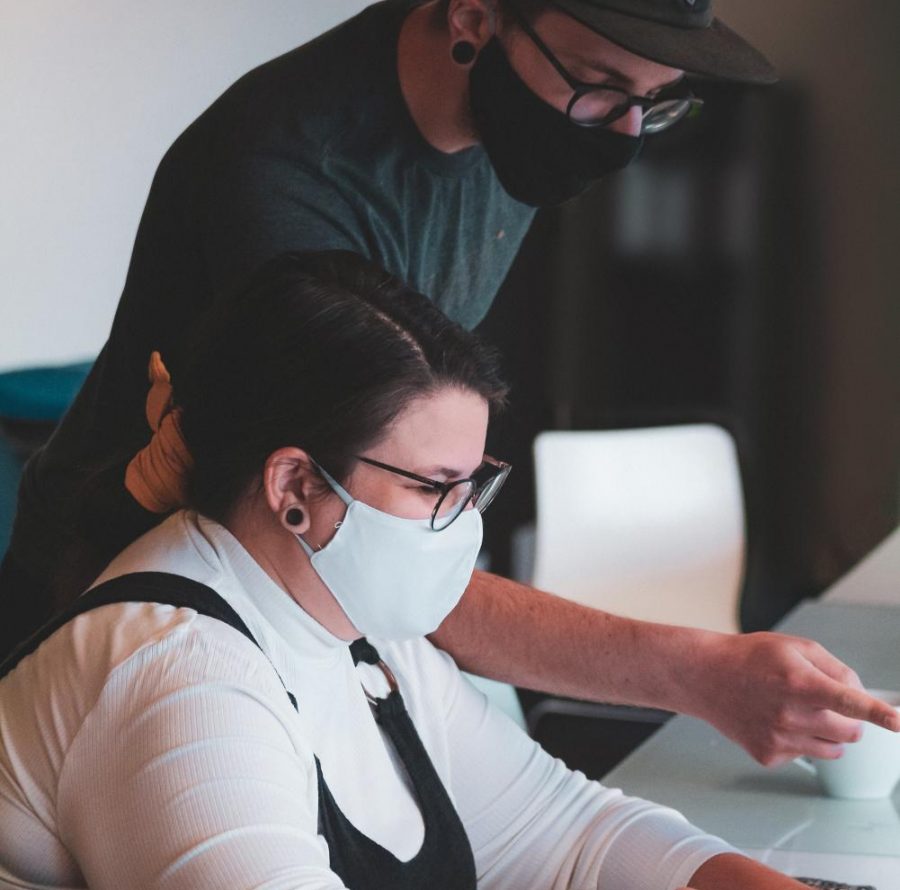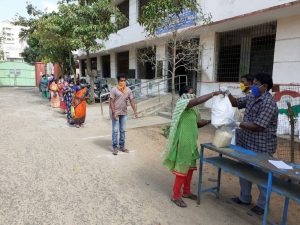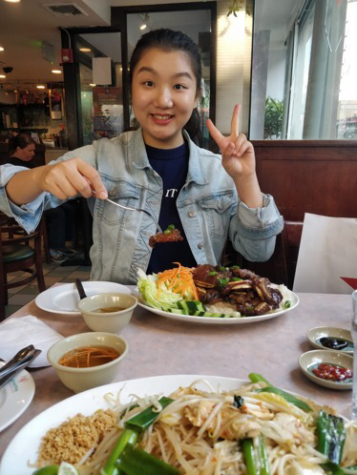Best advice: Internationals talk job hunting
May 25, 2021
Getting a full-time job last spring was no easy feat for 2020 graduates. The United States lost 22.3 million jobs in the first two months of the COVID-19 pandemic. Although economies across the country and the world have begun to recover, the U.S. still has 8 million jobs less than it did pre-pandemic. The Global Observer asked students and recent graduates about their experiences job hunting during a pandemic, including what tips and tricks they had for those about to start their career search.
Thirty-five people ages 18-42, with a median age of 25, responded to the survey. More than 20 had a master’s degree. People from at least six countries responded, including the U.S., China, Canada, Thailand, Ecuador, and Japan. Here is what they had to say:
Passion over pay
When asked, “What’s the main thing you consider when looking for a job?” 48.6% of respondents said doing work they are passionate about was the main factor they took into account when considering whether or not to take a job. The ability to gain skills and learn on the job was the second most selected reason with support from 32.4% of respondents, followed by salary at 8.1%.

Company culture matters
With 73% of votes, company culture was the main reason GO readers who took the survey said they would quit a job.
Where does your job hunting pressure come from?
When it comes to job hunting pressures, 32.4% of those who took the survey said their immigration status was the main source of pressure to find a job. Self-motivation and parents or family were the second most common sources, with each of those categories garnering 21.6% of votes, while 13.5% said their job hunting pressure came from their peers.
GO readers also offered tips and encouragement to those in the midst of their job search:
“If you are not able to be flexible and open to alternative options, wait.”
“Be patient and don’t give up.”
“Do not be discouraged if it takes longer than usual to find something because nothing is normal right now.”
“Don’t let desperation make your choices for you.”
“Be persistent.”
“Prepare a very original and personal portfolio … they want to see YOU through your work.”
“Don’t give up and keep trying!”
“The entire process of job searching has become very difficult especially due to Covid-19, but one should not lose hope. Resources such as LinkedIn, Indeed, Google search, NUWorks database etc. should be used for the job-hunting process.”
“Find websites where you can set up job alerts, and try just reaching out to managers to see if they’re interested in your resume.”
“Keep looking and keep networking! Opportunities won’t just come to you, you have to look for them. Also, ask friends and peers, you never know who may have a suggestion or know of an opening.”
“Be Positive. Where there is a will, there is a way!”
“Use your connections!”
“Look at local opportunities first, then look for online opportunities. If you are good at technology/computer science, I think there will be many possible online job opportunities.”
“It’s really hard, just stay positive. If you get rejected in an interview, don’t take it personally.”
Learn from other people’s mistakes!
Respondents to the survey also offered advice on what they would have done differently if they had to go through the process again.
“I would be more active and ask for help when needed.”
“Approach new people.”
“I would have reached out to my professors and their connections instead of diving into the web immediately.”
“I would work on the way I replied during interviews and would have been more confident.”
“I should have tried to be more active and network with connections on LinkedIn.”
“I should have taken more time for my initial job hunting. I decided on what I thought would be the best at that time, but I could’ve looked at other companies or even other industries.”
“I would have widened the breadth of my search when it came to industries. I think I’d be happy working in a variety of industries, so I wish I had made my internship less targeted to one specific industry.”
“Start it sooner, prepare for it more carefully.”
“Be more organized. Know where you applied and when so you can follow up.”





